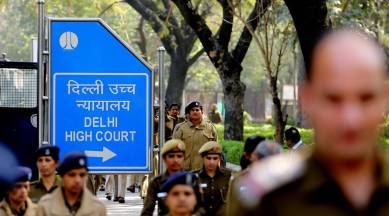Stay updated with the latest - Click here to follow us on Instagram
Can’t deny maternity benefits due to nature of employment: Delhi HC
The HC added that the Act which grants certain reliefs to expecting or new mothers when in fact the reliefs should come as a “matter of right to the women employees who may be in that position”.

The Delhi High Court recently observed that “maternity benefits” are fundamental to a woman’s identity who chooses to bear a child and there is nothing in the Maternity Benefit Act suggesting that a “working expecting woman” is barred from reliefs due to the nature of her employment.
A single judge bench of Justice Chandra Dhari Singh, in its July 26 order, said, “Maternity benefits do not merely arise out of statutory right or contractual relationship between an employer and employee but are a fundamental and integral part of the identity and dignity of a woman who chooses to start a family and bear a child. The liberty to carry a child is a fundamental right that the Constitution of the Country grants its citizens under Article 21. Further, the choice not to carry a child is an extension of this fundamental right. However, to stand in the way of exercise of this right by a woman, without procedure or intervention of law, is not only violative of the fundamental rights granted by the Constitution of India but also against the basic tenets of social justice”.
monthly limit of free stories.
with an Express account.
The HC noted that the Maternity Benefit Act is a “welfare and social legislation” and the intent of the legislature was not to “limit or restrict the extent and scope of reliefs”.
“There is nothing in the language of the Act or in its provisions which suggests that a working expecting woman would be barred from getting the reliefs due to the sole reason of the nature of their employment,” the court said.
Justice Singh further observed that if in this day and age, a woman is “made to choose” between her “familial life and a career progression” then “we would be failing as a society by not providing her the means to thrive, whether in professional life or in personal life”.
The HC added that the Act which grants certain reliefs to expecting or new mothers when in fact the reliefs should come as a “matter of right to the women employees who may be in that position”.
The court made the remarks while hearing a plea by an advocate appointed in the Juvenile Justice Board-1 as a legal aid counsel. During the period of her contractual employment, she conceived a child in 2017 and applied for maternity leave of seven months pursuant to which she sent an email to Delhi State Legal Services Authority requesting grant of maternity benefits. The woman claimed that DSLSA in its reply said that there is no provision for the grant of maternity benefits for Legal Services Authorities, pursuant to which she moved the HC.
DLSA submitted that the petitioner is not entitled to claim maternity benefits since she was only an empanelled advocate who discharges her services and is not an employee of the respondent organisation to whom such benefits accrue.
It added that the advocates empanelled with DSLSA and deputed with the Juvenile Justice Boards are paid honorarium as per the fee scheduled by the DSLSA for which they are required to submit a report by the end of each month. DSLSA said that giving maternity benefits in such circumstances would be contrary to the intent and purpose of the Legal Services Authority Act.
Justice Singh said that it is ironic that the petitioner, who was appointed with the Juvenile Justice Board, hired to protect the interest and welfare of the children who may be suffering at the hands of the criminal justice system, was unable to secure the benefits that were necessary for the best interest and welfare of her own child.
The HC said that DSLSA admittedly extends benefits arising out of the Maternity Benefit Act to its permanent/regular employees however, it has been denying such benefits to contractual employees, such as the petitioner.
“…this Court is of the considered view that the respondent should have extended the benefits and reliefs under the Act to the petitioner as were being extended to its own employees who were similarly situated,” the High Court observed and directed DSLSA to “release all medical, monetary and other benefits”.
“Since, no extreme medical or other exigencies have been presented by the petitioner, ante-natal or post-natal, she shall be entitled to the benefits for the time period as provided under the Maternity Benefit Act, 2017 of 26 weeks. The needful shall be done by the respondent within a period of three months from the date of receipt of this order,” the HC said allowing the woman’s plea.
The HC, however, made clear that this decision has been made in the peculiar facts and circumstances of the case and shall not be treated as a precedent.